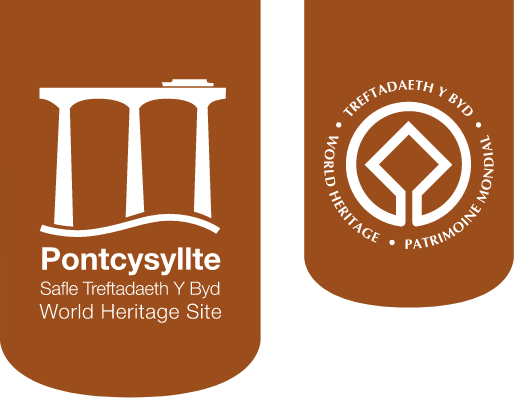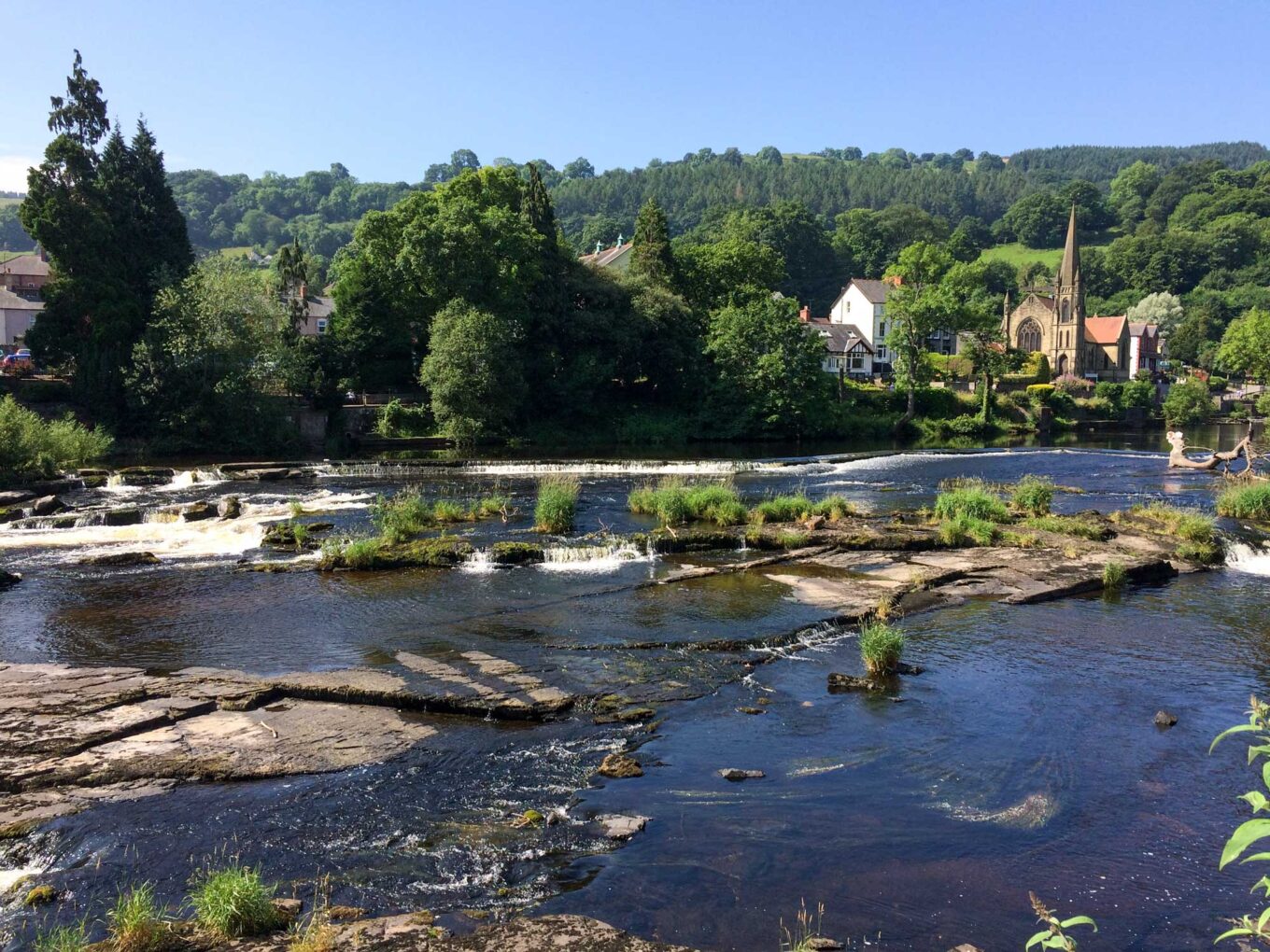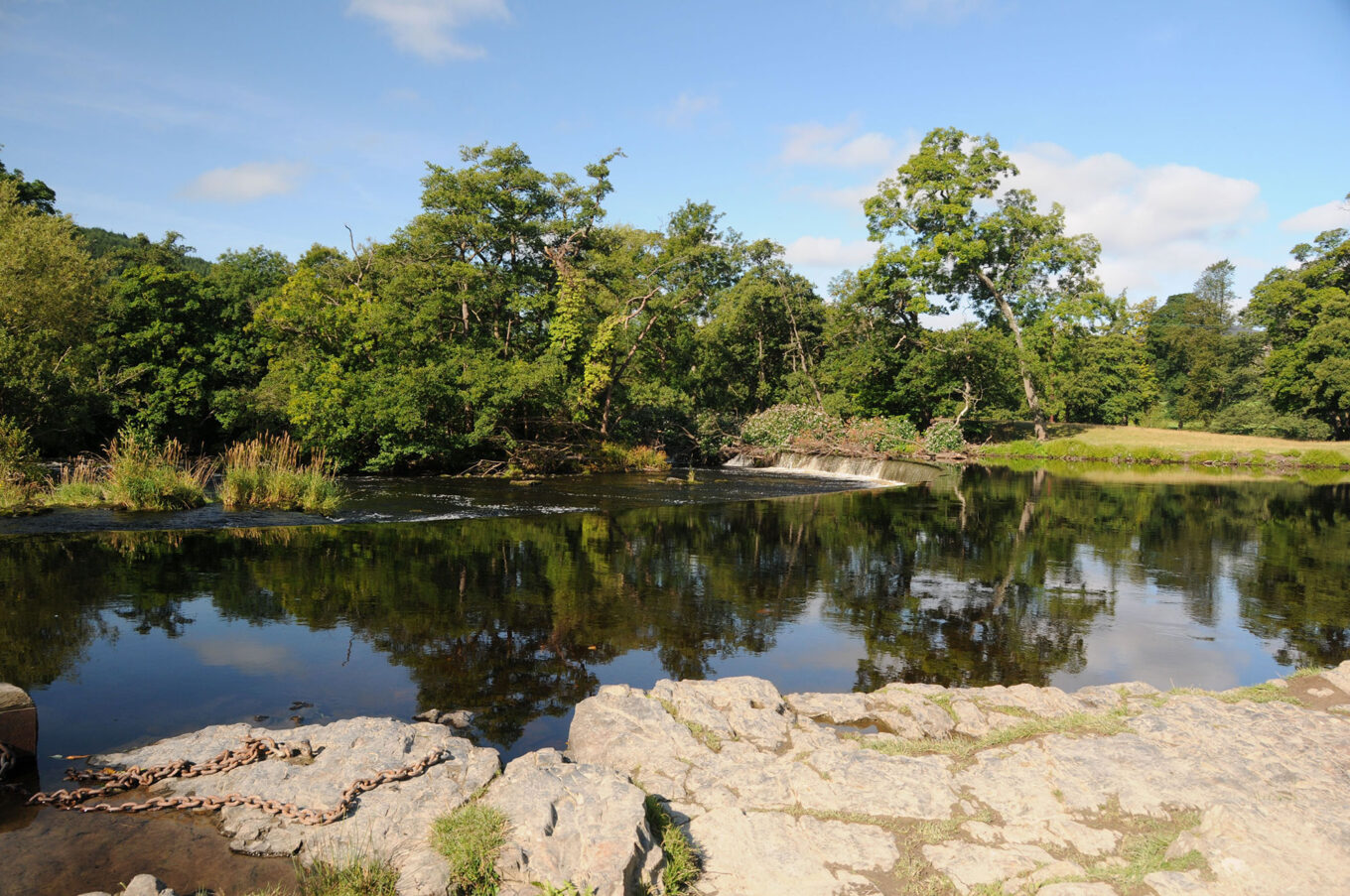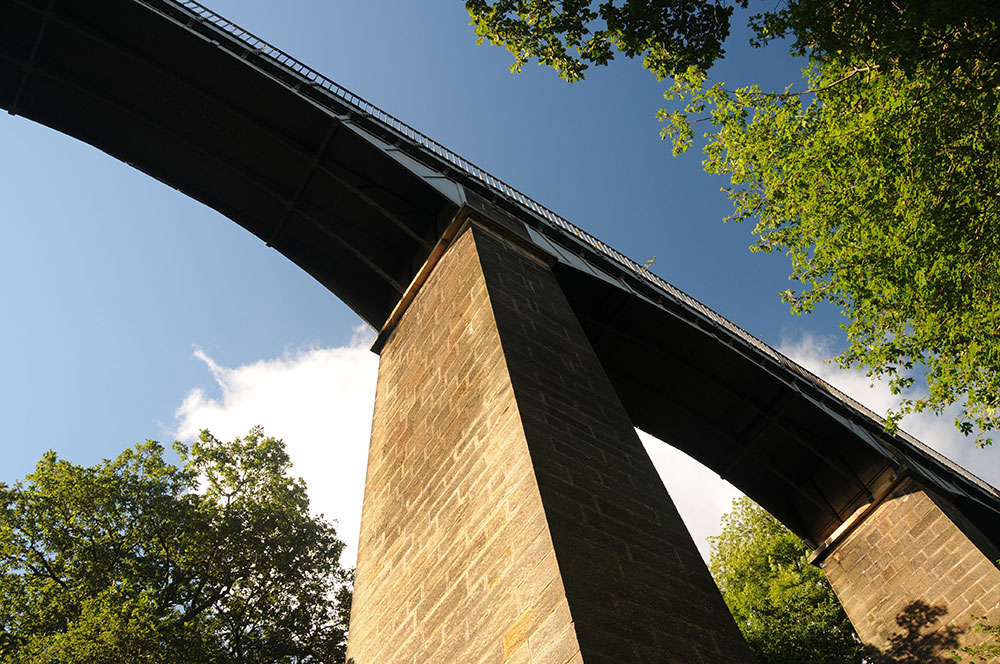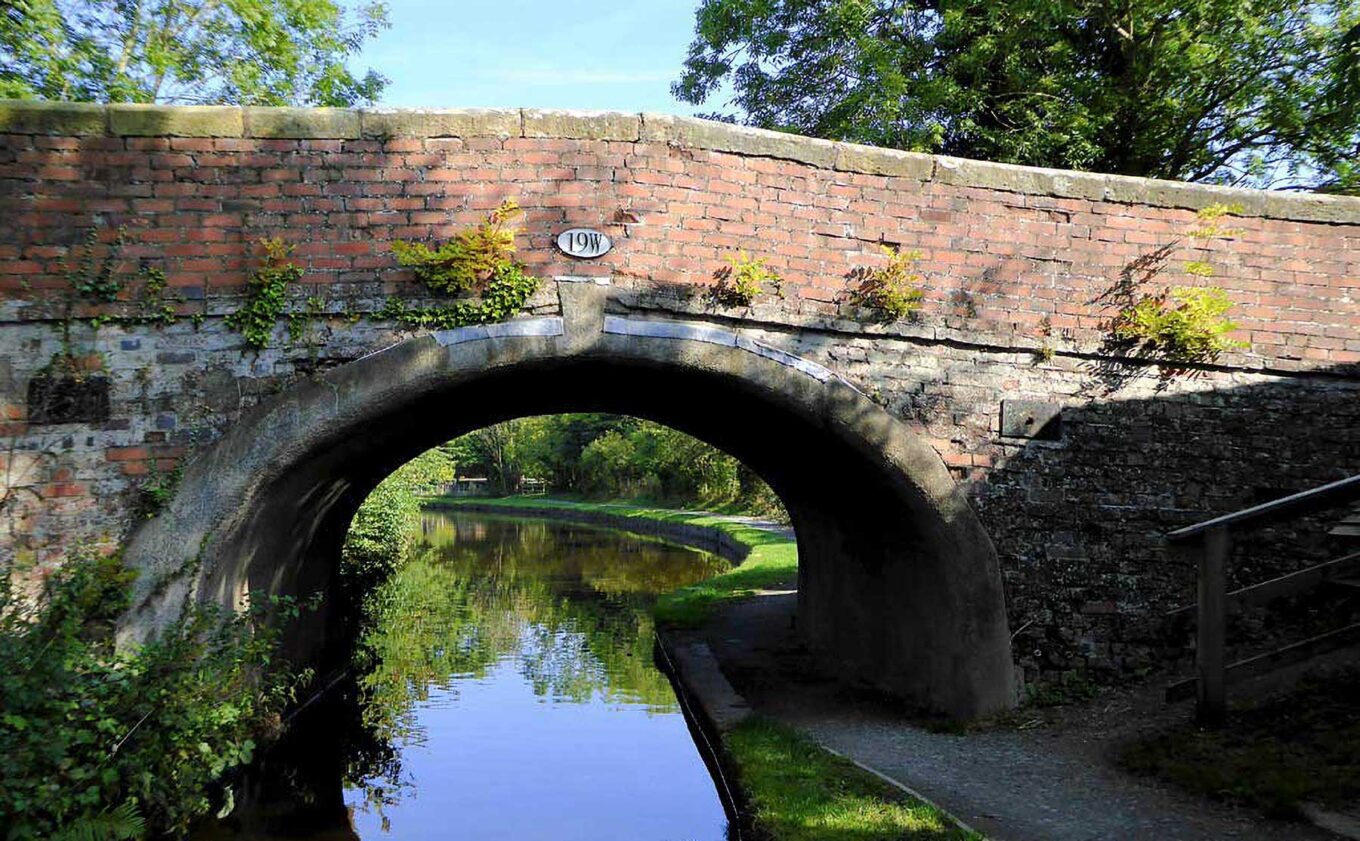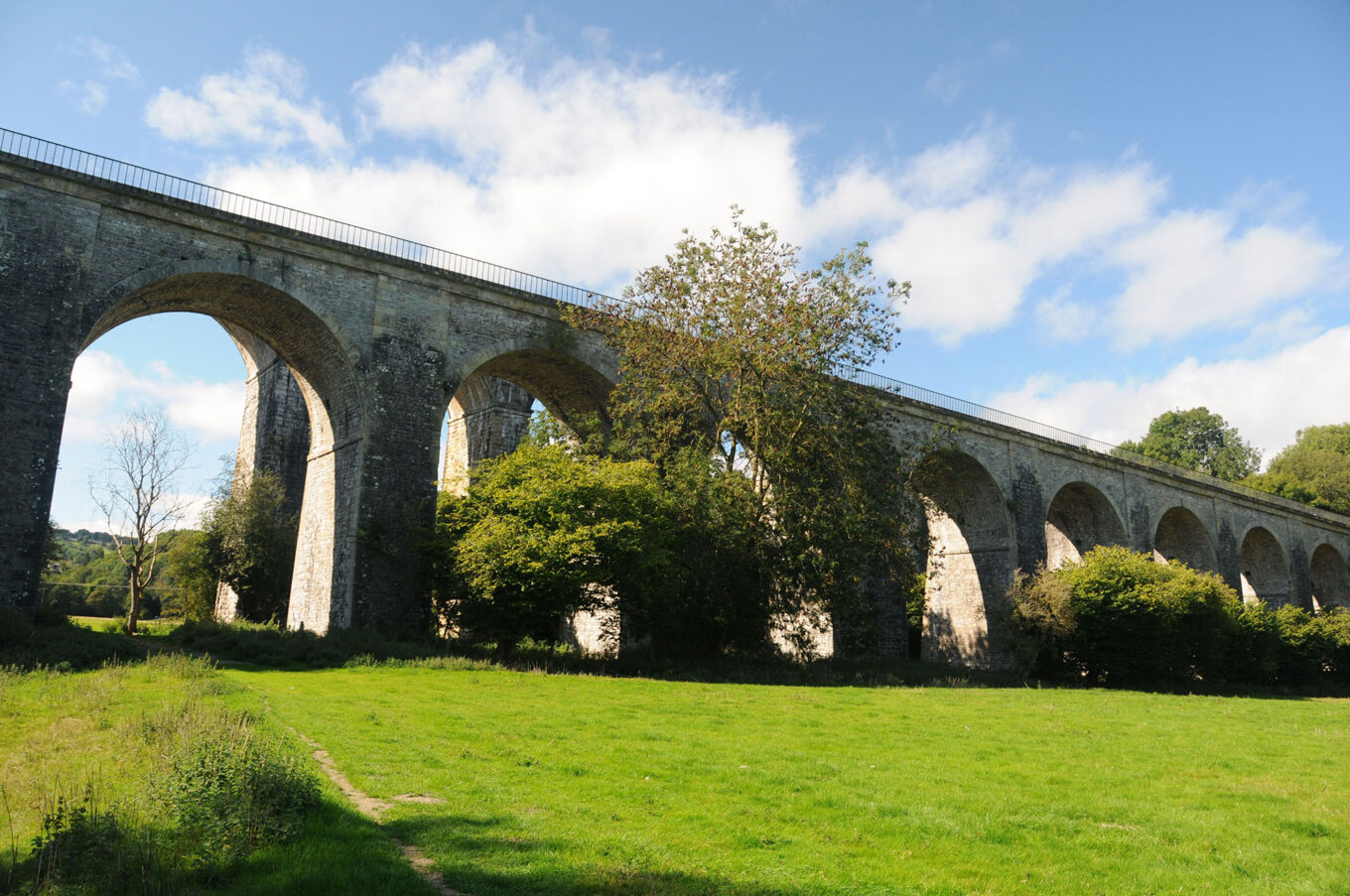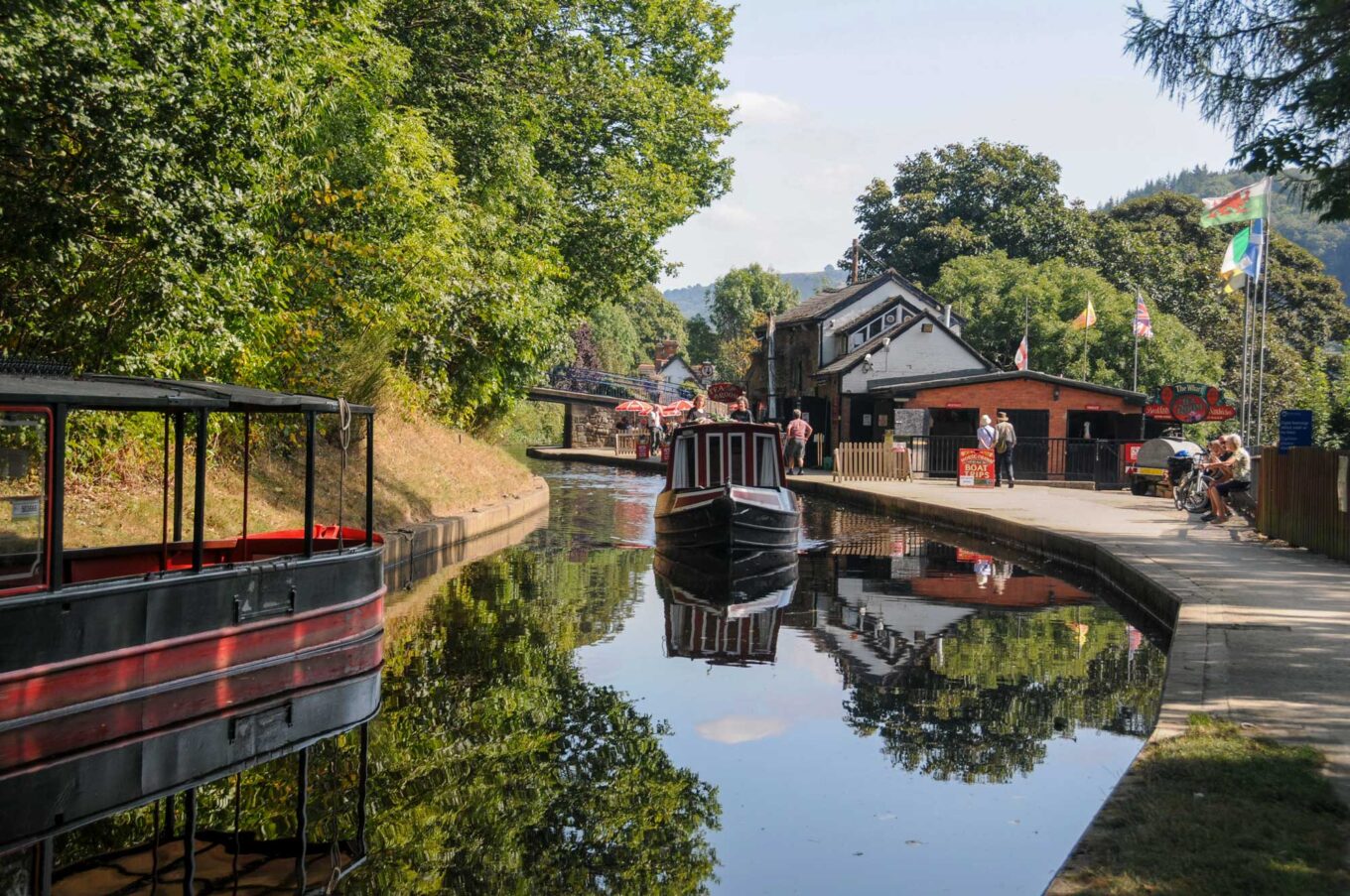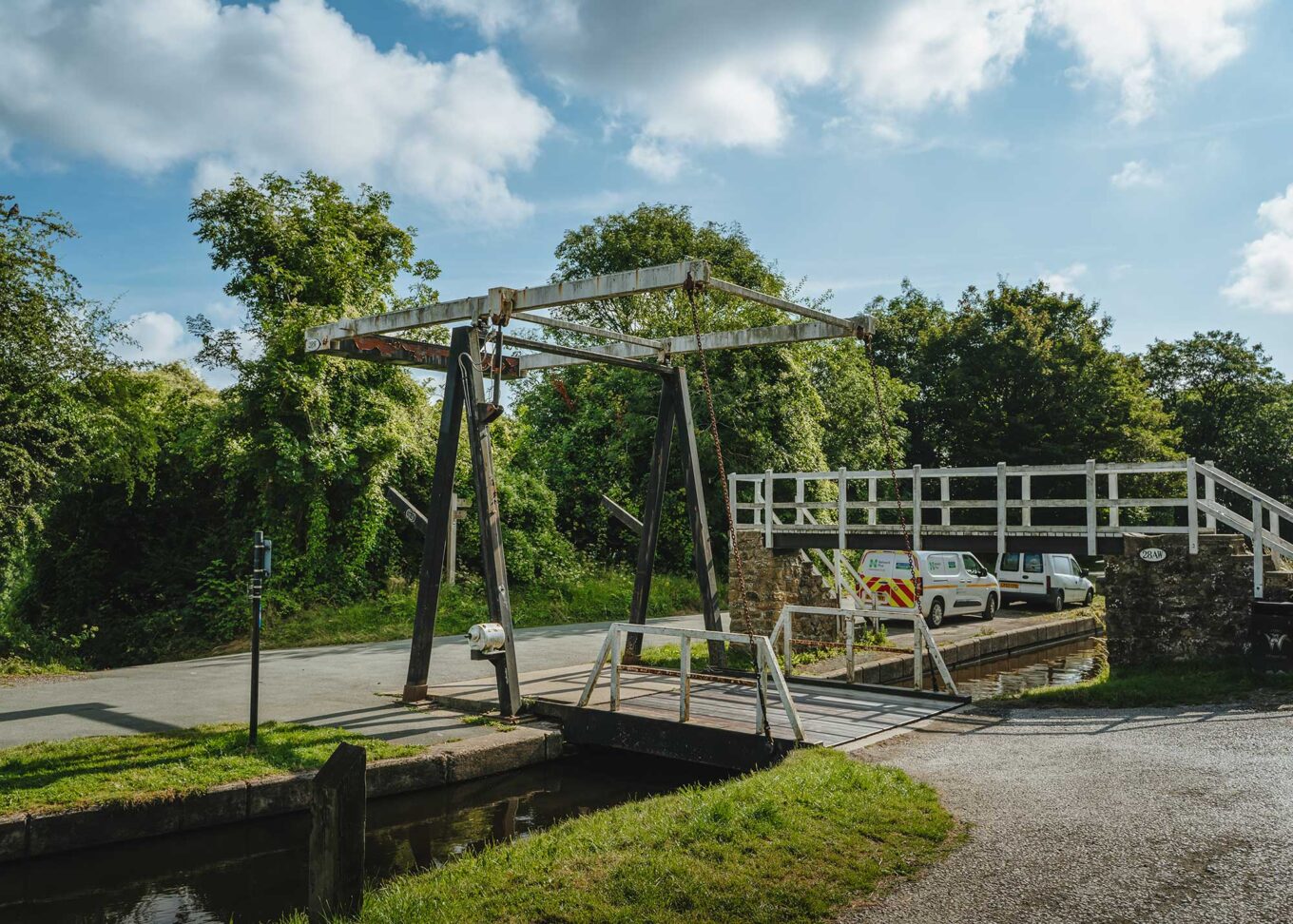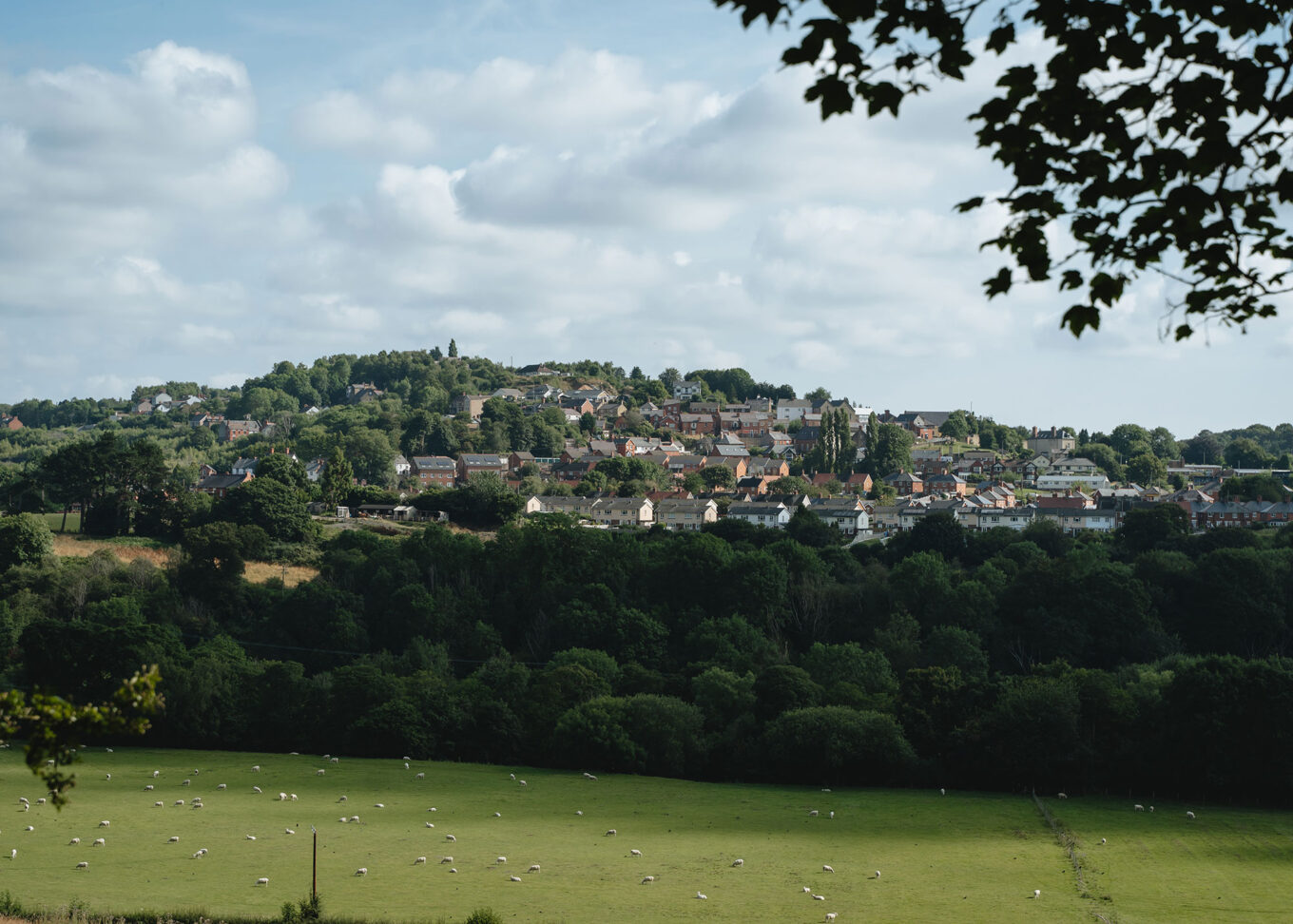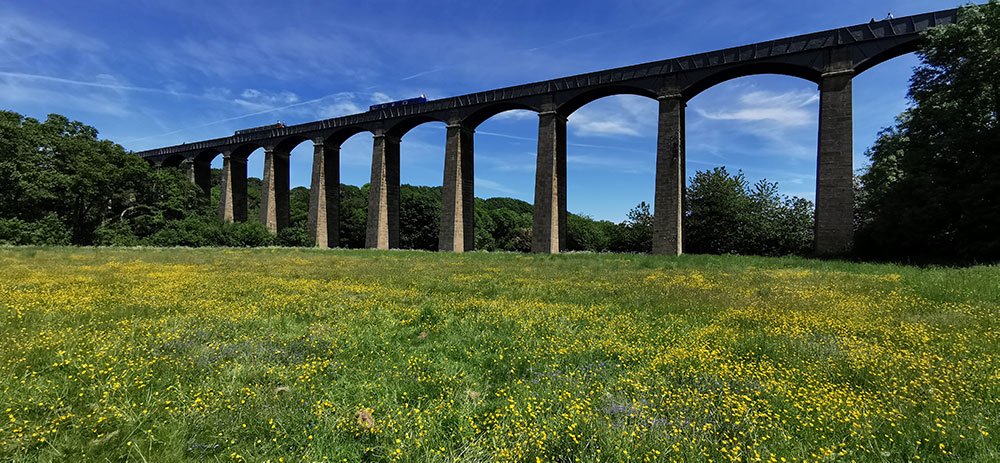Tours
Take a tour around Pontcysyllte Aqueduct and Canal World Heritage Site to discover more about the Llangollen Canal and the effect it had as industry developed and local communities grew. Meet some of the industrial pioneers, the workers and early tourists to the Dee Valley as well as the people who live and work around the canal today.
There are nine tours to enjoy. Explore the full eleven miles of the World Heritage Site on the Pontcysyllte Aqueduct and Canal tour or get to know some of the areas better on the individual tours.
Visitors have been drawn to Llangollen nestled in the picturesque Dee Valley for many years, admiring the views and enjoying walks along the river and canal side. Artists and writers continue to be inspired by the stunning landscape full of natural and historic features.
Situated in the heart of the beautiful Dee Valley, Horseshoe Falls is the essence of the picturesque landscape that has inspired writers, artists and musicians for centuries. Here water is drawn from the Dee to feed the Llangollen Canal via a weir designed by William Jessop, Thomas Telford and Thomas Denson to complement and enhance the landscape.
Pontcysyllte Aqueduct and Canal World Heritage Site stretches eleven miles from Horseshoe Falls at Llantysilio to Gledrid Bridge in Shropshire. Elegantly designed engineering features enhance the landscape and appear to carry the canal effortlessly across two deep river valleys and through undulating terrain.
Gledrid Bridge marks the gateway of the World Heritage Site where the hilly terrain of Wales presented a challenge to the engineers who needed to work out how the canal could be built across deep river valleys.
Chirk is rich in engineering features with an aqueduct, a viaduct and a tunnel clustered around the area that was once the public wharf for the town. The viaduct was built several years later than the aqueduct and provided fierce competition for trade on the canal but today they sit harmoniously in the landscape in matching warm sandstone.
Llangollen Wharf is one of the most popular spots on the Llangollen Canal. Here horses pull boats full of excited tourists along the canal, just as they have done for nearly 150 years. Along the canal towards Trevor there are fabulous views up to Castell Dinas Brân and Trevor Rocks, extensively quarried over the years.
Froncysyllte flourished as the canal provided easy transport and opportunities for businesses to grow. At the heart of the village is the iconic lift bridge while just along the canal two banks of limekilns stand as reminders of former industry.
The rich natural resources around Cefn Mawr including high quality sandstone, rich coal seams with associated clay deposits and ironstone have been exploited since medieval times. As industry developed the town grew to furnish the needs of the growing population.
Pontcysyllte Aqueduct is the jewel in the crown of the World Heritage Site. It was the tallest, navigable aqueduct in the world for over 200 years after it opened in 1805 and was built using innovative technology. Crossing the aqueduct is just as exciting today as it was when it first opened.
Chirk is rich in engineering features with an aqueduct, a viaduct and a tunnel clustered around the area that was once the public wharf for the town. The viaduct was built several years later than the aqueduct and provided fierce competition for trade on the canal but today they sit harmoniously in the landscape in matching warm sandstone.
Froncysyllte flourished as the canal provided easy transport and opportunities for businesses to grow. At the heart of the village is the iconic lift bridge while just along the canal two banks of limekilns stand as reminders of former industry.
Visitors have been drawn to Llangollen nestled in the picturesque Dee Valley for many years, admiring the views and enjoying walks along the river and canal side. Artists and writers continue to be inspired by the stunning landscape full of natural and historic features.
Llangollen Wharf is one of the most popular spots on the Llangollen Canal. Here horses pull boats full of excited tourists along the canal, just as they have done for nearly 150 years. Along the canal towards Trevor there are fabulous views up to Castell Dinas Brân and Trevor Rocks, extensively quarried over the years.
Pontcysyllte Aqueduct is the jewel in the crown of the World Heritage Site. It was the tallest, navigable aqueduct in the world for over 200 years after it opened in 1805 and was built using innovative technology. Crossing the aqueduct is just as exciting today as it was when it first opened.
Gledrid Bridge marks the gateway of the World Heritage Site where the hilly terrain of Wales presented a challenge to the engineers who needed to work out how the canal could be built across deep river valleys.
The rich natural resources around Cefn Mawr including high quality sandstone, rich coal seams with associated clay deposits and ironstone have been exploited since medieval times. As industry developed the town grew to furnish the needs of the growing population.
Situated in the heart of the beautiful Dee Valley, Horseshoe Falls is the essence of the picturesque landscape that has inspired writers, artists and musicians for centuries. Here water is drawn from the Dee to feed the Llangollen Canal via a weir designed by William Jessop, Thomas Telford and Thomas Denson to complement and enhance the landscape.
Pontcysyllte Aqueduct and Canal World Heritage Site stretches eleven miles from Horseshoe Falls at Llantysilio to Gledrid Bridge in Shropshire. Elegantly designed engineering features enhance the landscape and appear to carry the canal effortlessly across two deep river valleys and through undulating terrain.
